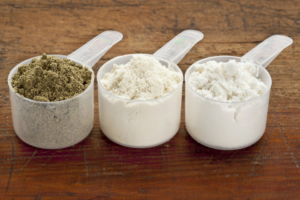
Spring Cleaning — ‘Tis the Season for Good Gut Health
Spring is not only the perfect time for a deep clean of your house—it’s also a great time to recommit to a healthier lifestyle. One

Part of healthy aging is maintaining a strong social support system. There are several studies examining the connection between friends and age. Their overwhelming conclusion is that good friendships have a massive impact on mental and social health.
Aging adults with friends are more likely to stay physically active. Adults who live in the same area can meet up daily or weekly for short walks or other activities like golfing, which can help older adults stay active. Staying active is an essential part of reducing health risks such as high blood pressure and diabetes. Most physicians recommend aging adults exercise at least three times a week. Dance classes, gardening, and bowling are physical activities to do with friends.
Strong friendships for aging adults can also have an impact on the immune system. Social isolation and loneliness can negatively impact many aspects of an aging adult’s health. However, adults who regularly socialize with friends and family can recover more quickly from illnesses and have a higher chance of outliving socially isolated people.
Strong friendships can help adults maintain healthy habits. Many adults are more motivated to stick with physical activity commitments, diet plans, and hygiene routines when they have social support. Plans with friends can serve as motivation to continue habits and routines that ultimately help aging adults maintain their health. Additionally, maintaining healthy habits can help aging adults feel more independent, which can be beneficial for mental health as well.
Strong social connections are crucial for mental health. Aging adults who maintain a social network can increase their sense of belonging, improve self-confidence, establish a sense of purpose, reduce stress, and increase happiness. Friendships are also essential for coping with major life changes.
For aging adults who don’t have an existing social network or support system, forging new connections is a top priority. There are several ways older adults can make long-lasting friendships. For example, adults can attend events at senior recreation centers by taking a class to learn a new skill, participating in game nights, or joining outdoor activity programs like bird walks.
Some adults may want to spend their time volunteering to improve their community, which is a good opportunity to make friends with like-minded individuals. Adults can also join gyms such as the YMCA, get a part-time job, become involved in their local faith community, or join a social media platform. Each of these avenues opens the door to creating strong connections with new friends who share the same interests.
Aging adults with strong friendships can enjoy several physical, mental, and social benefits. Not only are friends an essential support system, but friends can also be motivation to keep healthy habits in the future. To learn more about healthy aging, visit Panacea Scientific.

Spring is not only the perfect time for a deep clean of your house—it’s also a great time to recommit to a healthier lifestyle. One

As an important macronutrient, protein is a vital part of healthy body functioning. Since every body is different, it can be a bit tricky to

Most people think they can get enough vitamin D3 from the sun, but it’s just not possible. The sun isn’t enough for most of us.

Payment types accepted:
Visa/MC/Discover/ American Express
© Copyright Panacea Scientific 2020. All rights reserved. | Website by Infinite Web Designs